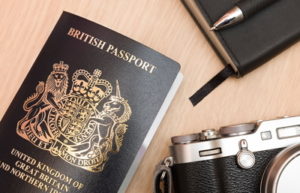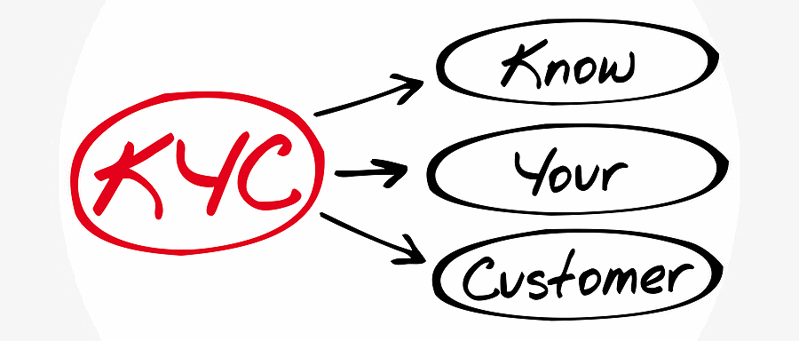 In the world of online gambling in the United Kingdom, identification checks are a standard procedure. Whilst a passport or a driving licence is often the go-to choice for confirming your identity, there are instances where these documents might not be readily available.
In the world of online gambling in the United Kingdom, identification checks are a standard procedure. Whilst a passport or a driving licence is often the go-to choice for confirming your identity, there are instances where these documents might not be readily available.
In such cases, operators employ alternative methods, like soft credit checks or consulting the electoral roll. There are other viable options for those without a passport or driving licence, with acceptable alternative documents available for those that might need them. There are also avenues for recourse in the event of disputes over withheld funds.
In other words, if you are one of the people that either hasn’t ever done their driving test, thereby not having a driving licence, or you don’t go abroad and therefore have never felt the need to get a passport, all is not lost. It is still the responsibility of betting companies to make sure that you are who you say you are and to ensure you are of a legal age to gamble, but they are able to do so without you needing to have one of the ‘big two’ documents to your name. The question is, what documents are acceptable and what can you do to prove the fact that you are genuine?
Why You Need To Provide Identification

The first question that you might find yourself asking is why, exactly, you even need to provide any ID in the first place. Gambling companies are required by the United Kingdom Gambling Commission to ensure that you are who you say you are and that you are legally allowed to gamble before they allow you to place any bets.
Whilst they aren’t allowed to do this as a condition of you withdrawing money if they had an earlier chance to ask you, they will need to fulfil their legal obligations before they can pay out any winnings that you are owed.
When it comes to a gambling-related business asking you to provide identification, there are three main reasons why they might ask you to do so. The first is to ensure that you are old enough to be able to place bets and take part in other forms of gambling.
The second is to check your name against the system to find out whether you have previously chosen to self-exclude. The final one is to confirm your identity, which is an important part of their anti-money laundering requirements. You need to prove your age and who you are before betting, with specific documents being acceptable.
Which Documents Are Acceptable?
 You now know that it is a legal requirement for gambling companies to find out who you are and your age before they let you bet, so the next obvious question will be how, exactly, you go about proving those things. According to the UKGC, there are three types of document that a betting company can ask you to provide them with, which are as follows:
You now know that it is a legal requirement for gambling companies to find out who you are and your age before they let you bet, so the next obvious question will be how, exactly, you go about proving those things. According to the UKGC, there are three types of document that a betting company can ask you to provide them with, which are as follows:
- Passport
- Driving licence
- Household bill
The Gambling Commission doesn’t specific which type of information it is that a business should ask for, which can obviously confuse things. As well as these specific documents, it is also perfectly acceptable for a betting company to ask you for a selfie if they are concerned that there might be some fraudulent activity on your account.
This is why it is important for them to know who you are before you begin betting, so that they can check whether your selfie matches up with the photo that you provided when you first opened your account, or when they asked you for it.
Gambling businesses, whether you’re talking about casinos or online sites, amongst others, are required to get the following information about you, amongst other things:
- Your name
- Your current address and previous addresses
- Your date and place of birth
- What you look like
- Your employment history
- Your financial history
- Your family circumstances
For UK-based punters without a passport or driving licence, the process of confirming identity need not be an insurmountable hurdle. Online gambling platforms often employ soft credit checks, tapping into financial data in order to establish the legitimacy of an individual.
This can provide a reliable means of verification without necessitating traditional identification documents. Similarly, consulting the electoral roll serves as a valuable tool for confirming the identity of UK citizens. By cross-referencing provided information with official voter registration records, operators can ensure that individuals are who they claim to be, even in the absence of a passport or driving licence. It can also mean you do not need to provide proof of address.
If You Don’t Have A Passport Or Driver’s Licence
 It is not uncommon for people not to have a driver’s licence or a passport. When that is the case, there are some options that are open to you. In certain cases, for example, individuals may possess a national identity card that was issued by the government. These cards contain pertinent personal information and a photograph, making them a suitable substitute for a passport or driving licence.
It is not uncommon for people not to have a driver’s licence or a passport. When that is the case, there are some options that are open to you. In certain cases, for example, individuals may possess a national identity card that was issued by the government. These cards contain pertinent personal information and a photograph, making them a suitable substitute for a passport or driving licence.
A birth certificate, meanwhile, is a foundational document that verifies an individual’s identity. While it lacks a photograph, it can be used in conjunction with other forms of identification to establish legitimacy.
Some individuals may possess government-issued social benefit cards that contain relevant personal details. These can be used as supplementary forms of identification. On top of that, recent utility bills and bank statements with the individual’s name and current address can also be used to corroborate identity.
In other words, possessing a passport or driving licence is the conventional path to identity verification in online gambling in the United Kingdom, but it is by no means the only route. If you don’t have either, you do have options open for you to explore.
Recourse for Disputes & Withheld Funds
 Sometimes, a betting company might not be willing to pay you out your winnings if there is a feeling that you might not be who you claim to be. In cases where there are funds being withheld due to a lack of traditional identification documents, there are avenues for recourse.
Sometimes, a betting company might not be willing to pay you out your winnings if there is a feeling that you might not be who you claim to be. In cases where there are funds being withheld due to a lack of traditional identification documents, there are avenues for recourse.
The first step is to engage directly with the gambling operator’s customer support, explaining the situation and providing alternative forms of identification. You can ask them what forms of identity they would be willing to accept when they consider the fact that you don’t have a passport or driving licence.
Should this approach prove unsuccessful, there are regulatory bodies and ombudsman services that can be approached for assistance. The Gambling Commission, for example, oversees the industry and can outline what your options are by searching the site and reading the various rules and regulations that are in place for the gambling companies.
On top of that, the Independent Betting Adjudication Service provides an impartial platform for resolving conflicts. If you are not being allowed to withdraw money in spite of doing everything you can think of to prove you are who you say you are, you could get in touch with IBAS for assistance.
